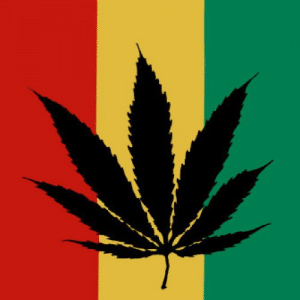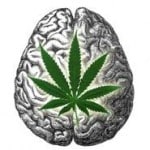It’s almost too taboo to discuss: pregnant women smoking marijuana. It’s a dirty little secret for women, particularly during the harrowing first trimester, who turn to cannabis for relief from nausea and stress.
If you were to inquire about pot and pregnancy on the Web, Baby Center offers a strongly worded warning from Gerald Briggs, pharmacist clinical specialist.
Briggs says that pot affects the baby’s growth and development and–gasp!–may even cause childhood leukemia. But there are no facts or studies attributed to back up the claims.
More than 50 pages of comments were posted to the site about Briggs’ statements. Some proclaimed the virtues of smoking marijuana while pregnant, offering proof of healthy children and stories of functioning during pregnancy thanks to cannabis. Other comments viciously showed disdain for pregnant patients, resorting to name-calling.
 Pregnant women in Jamaica use marijuana regularly to relieve nausea, as well as to relieve stress and depression, often in the form of a tea or tonic. In the late 1960s, grad student Melanie Dreher was chosen by her professors to perform an ethnographic study on marijuana use in Jamaica to observe and document its usage and its consequences among pregnant women.
Pregnant women in Jamaica use marijuana regularly to relieve nausea, as well as to relieve stress and depression, often in the form of a tea or tonic. In the late 1960s, grad student Melanie Dreher was chosen by her professors to perform an ethnographic study on marijuana use in Jamaica to observe and document its usage and its consequences among pregnant women.
Dreher studied 24 Jamaican infants exposed to marijuana prenatally and 20 infants that were not exposed. Her work evolved into the book Women and Cannabis: Medicine, Science and Sociology, part of which included her field studies.
Most North American studies have shown marijuana use can cause birth defects and developmental problems.
Those studies did not isolate marijuana use, however, lumping cannabis with more destructive substances ranging from alcohol and tobacco to meth and heroin.
In Jamaica, Dreher found a culture that policed its own ganja intake and considers its use spiritual. For the herb’s impact when used during pregnancy, she handed over reports utilizing the Brazelton Scale, the highly recognized neonatal behavioral assessment that evaluates behavior.
The profile identifies the baby’s strengths, adaptive responses and possible vulnerabilities. The researchers continued to evaluate the children from the study up to 5 years old. The results showed no negative impact on the children, on the contrary they seemed to excel.
 Plenty of people did not like that answer, particularly her funders, the National Institute on Drug Abuse. They did not continue to flip the bill for the study and did not readily release its results.
Plenty of people did not like that answer, particularly her funders, the National Institute on Drug Abuse. They did not continue to flip the bill for the study and did not readily release its results.
“March of Dimes was supportive,” Dreher says. “But it was clear that NIDA was not interested in continuing to fund a study that didn’t produce negative results. I was told not to resubmit. We missed an opportunity to follow the study through adolescence and through adulthood.”
Now dean of nursing at Rush University with degrees in nursing, anthropology and philosophy, plus a Ph.D. in anthropology from Columbia University, Dreher did not have experience with marijuana before she shipped off for Jamaica.
The now-marijuana advocate says that Raphael Mechoulam, the first person to isolate THC, should win a Pulitzer. Still, she understands that medical professionals shy from doing anything that might damage any support of their professionalism, despite marijuana’s proven medicinal effects, particularly for pregnant women.
CASE CLOSED
Dr. Melanie Dreher’s study isn’t the first time Jamaican ganja smoking was subjected to scientific study. One of the most exhausting studies is Ganja in Jamaica–A Medical Anthropological Study of Chronic Marijuana Use by Vera Rubin and Lambros Comitas, published in 1975. Unfortunately for the National Institute of Mental Health’s Center for Studies of Narcotic and Drug Abuse, the medical anthropological study concluded: “Despite its illegality, ganja use is pervasive, and duration and frequency are very high; it is smoked over a longer period in heavier quantities with greater THC potency than in the U.S. without deleterious social or psychological consequences [our emphasis].”
Article From Culture Magazine

























